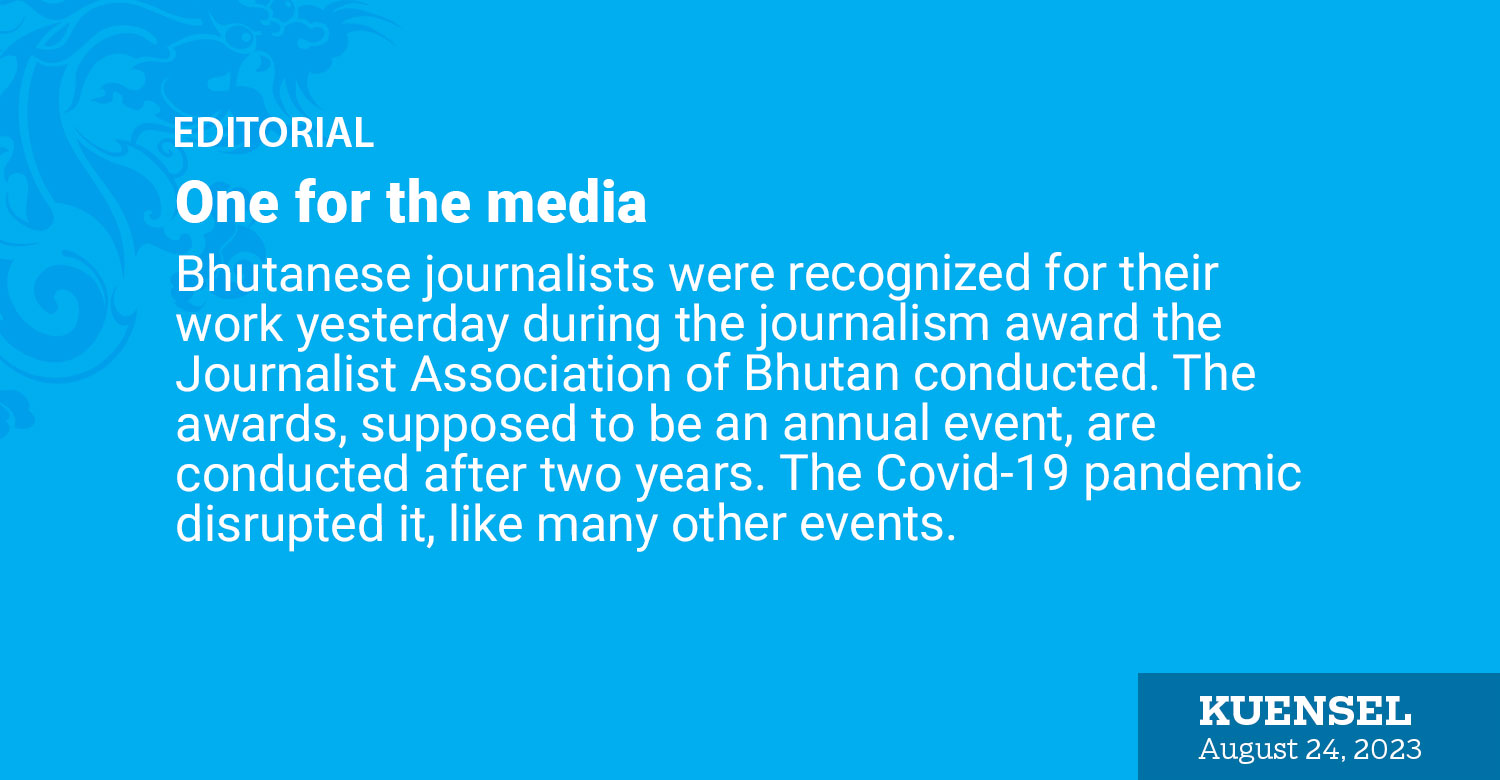Bhutanese journalists were recognized for their work yesterday during the journalism award the Journalist Association of Bhutan conducted. The awards, supposed to be an annual event, are conducted after two years. The Covid-19 pandemic disrupted it, like many other events.
The awards, no matter their value, come at a time when journalists could do with some encouragement, in any form. An award of excellence should boost their confidence and encourage them to strive harder. It also comes at a time when the news industry, like many others, is not going through the best of times.
Challenged with sustainability issues, the future of the news industry, whose survival many agree is essential to democracy, is facing profound challenges. While social media has provided free space and killed classifieds, the austerity measures and policies to go paperless badly hit the predominant income stream – from advertising, and printing for some.
The industry too is not spared by the attrition rate. Since the last awards, most newsrooms are manned by young university graduates with or without experience, yet they are trying to give their best. The best training, editors say, is to keep writing stories. This, not many can do because access to information is another bottleneck. They may have the best story ideas, but officials are “not giving” information even though information is not a commodity to be given or taken.
It is said that freedom of expression, freedom of media, and right to information, enshrined in the Constitution, are not for the media. But the media provides the space and it is their responsibility to help ensure that the people enjoy these rights. We say that journalism is publishing what somebody does not want to be published and that all the rest is public relations.
Given the challenges, the risk is resorting to the latter. Some rush to “break” what is shared on social media, quite often without even verifying, particularly those “published’ from anonymous accounts. The biggest risk is when the media is not sustainable. This gives room for owners, management, and advertisers to restrict the media. This is already happening with commercial departments influencing, if not questioning the editorial team on their coverage.
The Bhutanese media, despite all its shortcomings, still plays an important role. If they are to play the role of a watchdog, they need strong support from society because it is becoming difficult for the media to survive. The best support is letting them do what they are tasked with.
However, like the Minister for Industry, Commerce and Employment said at the award ceremony yesterday, the media needs to work harder and put in more effort instead of just complaining. The media must also be responsible and develop maturity, for freedom comes with responsibility. This too the minister hinted when saying that the government had been forgiving and accommodating to the media.
The award ceremony attended by government officials, members of the international agencies and civil society organisations, provides the hope that the Bhutanese media, despite its limitations, is considered an important pillar of democracy.


